
Marin’s Guide to a Cleaner, Greener Holiday
Make the holidays merry and sustainable with Marin Sanitary’s waste-smart tips. Find holiday service updates, how to sort seasonal items into the right carts, and simple ways to cut waste while keeping Marin’s celebrations joyful and bright.
Happy Holidays from all of us at Marin Sanitary Service!
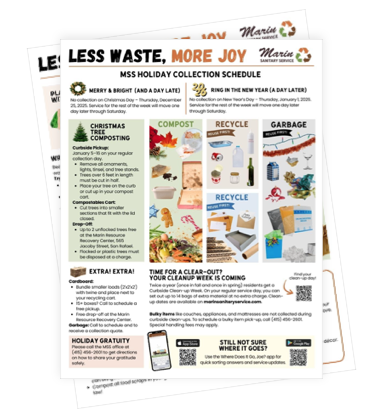
Download the Full Newsletter (PDF)
Stay up to date with holiday collection schedules, sustainability tips, and community news.
Download the full PDF version for easy viewing, saving, or printing at home.
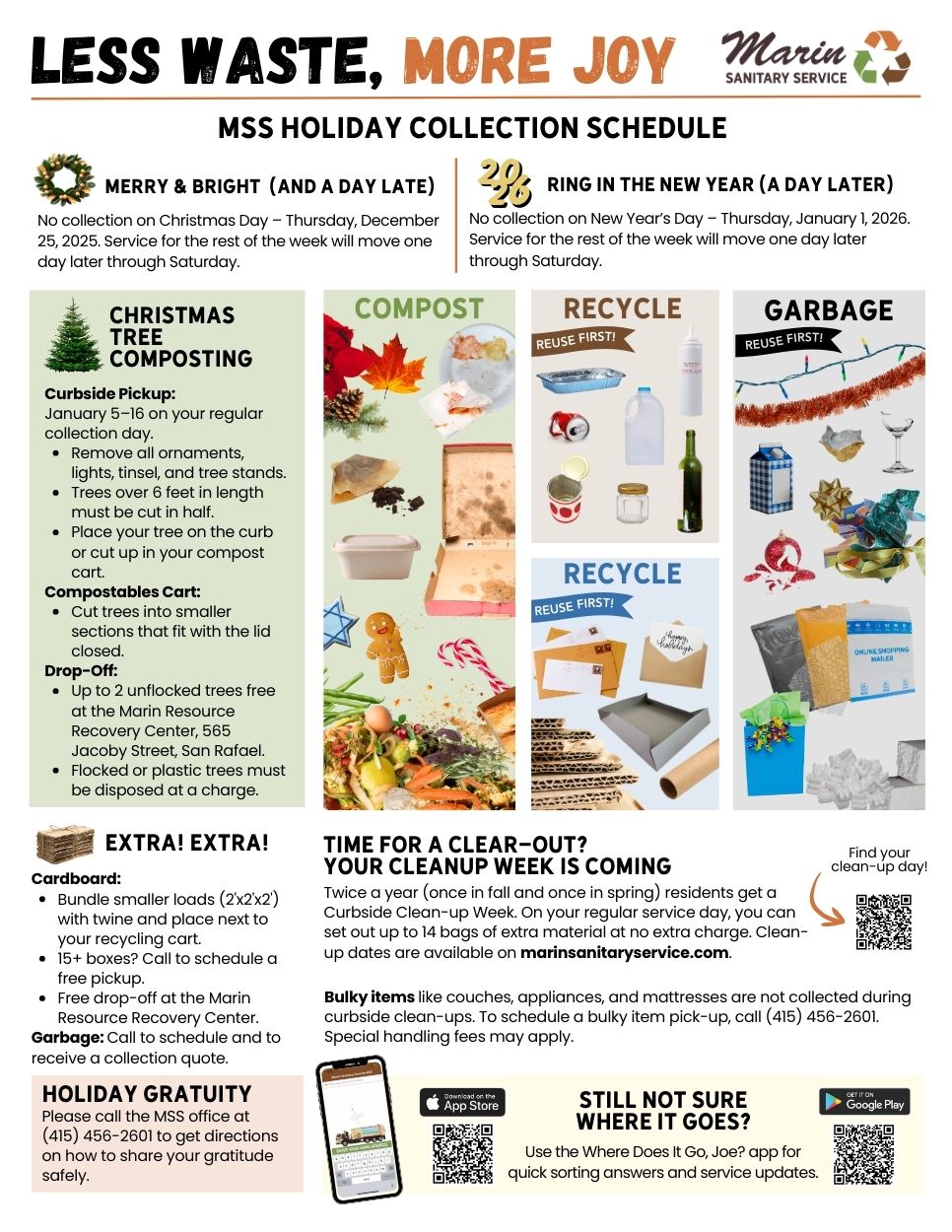
Links to more information
- View our holiday service and tree collection schedule on our Holiday Calendar page.
- Not sure which cart something goes in? Try our Where Does it Go, Joe sorting tool!
- Got extra stuff to dispose of? See our Curbside Clean-Up schedule and Bulky Item Collection page.
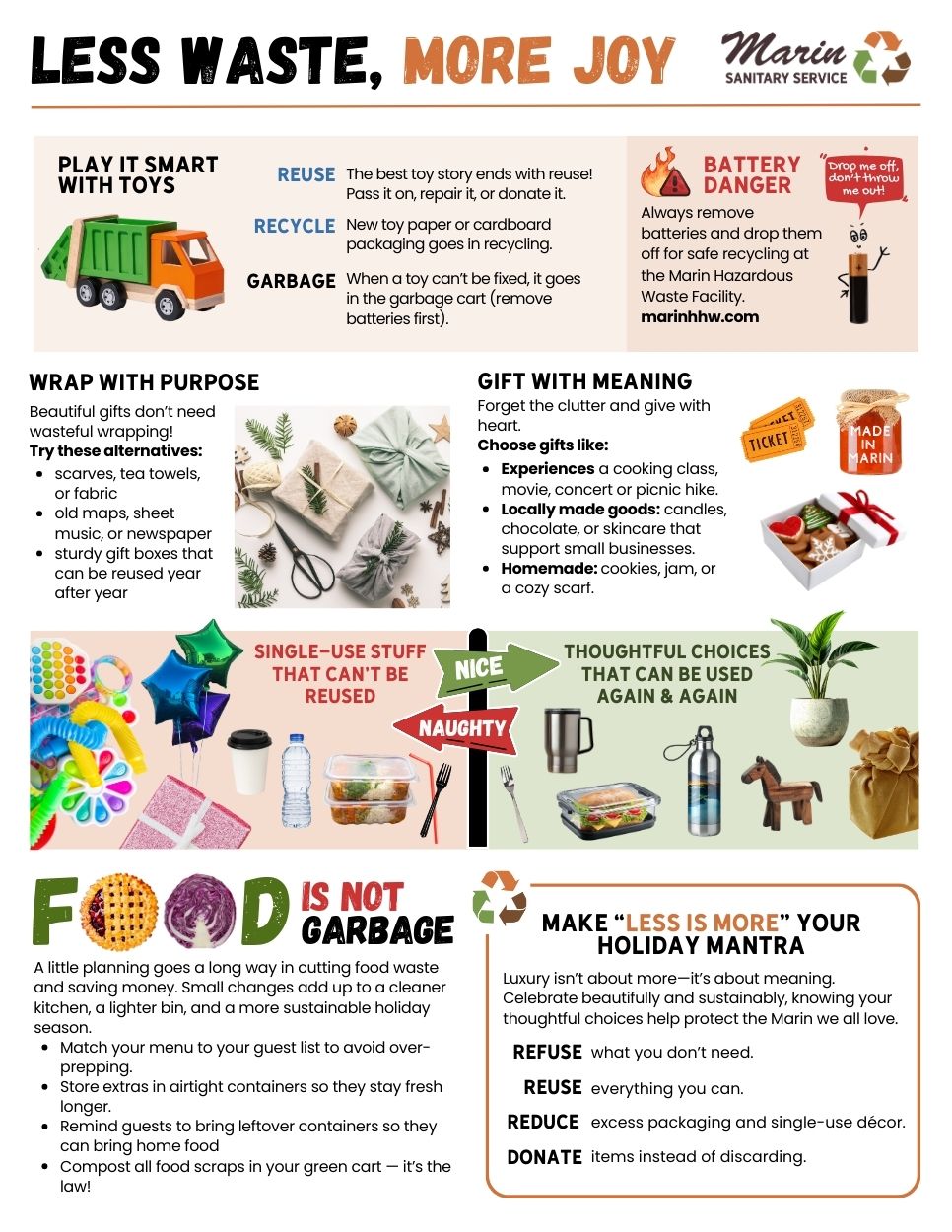
more information
- Please dispose of Household Hazardous Waste (like those toy batteries) at the Marin Household Hazardous Waste Facility.
- Food is not Garbage! Learn more about residential compost collection and the California law that requires all of us to compost!

Celebrate a sustainable holiday with eco-friendly tips from Marin Sanitary Service! Discover five easy ways to reduce waste this season, from green gift-wrapping to mindful recycling. Make your holidays memorable and waste-free.
1. Celebrate with a Living Christmas Tree

Composting your natural, undecorated Christmas tree is an easy and effective way to keep organic matter out of landfills. When organic materials like food scraps or plants (such as Christmas trees) are thrown into landfills, they break down without oxygen, producing methane—a powerful greenhouse gas that contributes to climate change. Composting, however, transforms these trees into nutrient-rich soil that benefits gardens and landscapes. By composting your tree, you’re reducing waste and supporting a sustainable, closed-loop system.
Additionally, some of the trees we collect are chipped and used as biomass fuel at a Co-Generation power plant. This renewable energy source replaces traditional fossil fuels like coal and is considered carbon neutral. When you compost your tree with Marin Sanitary Service, you’re supporting a sustainable, closed-loop system.
Last year, we collected over 8,000 trees, making a big impact on the environment!
Composting your Natural Tree is EASY
First, make sure your tree is free of decorations and stands.
- Put in Your Compostables Cart Anytime: For trees over 6 feet, cut them in half or place cut-up sections in your compostables cart with the lid closed.
- Curbside Collection January 6 through January 17: You may leave your Christmas tree at the curb on your designated service day and we'll pick it up.
- Tree Drop Off: For the entire month of January, residents may drop off up to two (2) unflocked trees at no charge at the Marin Resource Recovery Center, 565 Jacoby Street in San Rafael. There is a charge for flocked trees.
Visit our Holiday Schedule page for more information about tree collection and service updates.
2. Gift Sustainably
Avoid adding more “stuff” to people’s lives by giving something truly memorable, like experiences. Tickets to a local event, a community club membership, or a cooking class make thoughtful, package-free gifts that create lasting memories. How about gifting an experience like a cooking class or a wine tasting they’ll cherish for years to come?
Locally made goodies like handmade candles, artisanal chocolates, or natural skincare products are always a hit and come with a smaller carbon footprint by supporting local artisans. If you’re feeling crafty, homemade gifts like a jar of your famous cookies or a knitted scarf add a personal touch that can’t be bought. And don’t forget the value of giving your time—plan a fun day together, like a hike or a movie night, instead of buying something they might not need. Even a heartfelt letter expressing your gratitude can be a wonderful and meaningful gift that will be cherished for years.

3. Wrap Wisely
Traditional wrapping paper isn’t accepted in curbside recycling carts, but you can still wrap beautifully and sustainably by using reusable or repurposed materials. The key is to think about how the wrapping can be part of the gift, making it both thoughtful and sustainable.
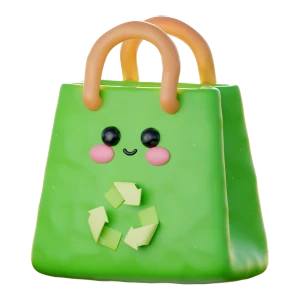
- Try using a reusable tote bag as gift wrap. It’s a gift and perfect for someone who loves practical items
- Repurpose items like maps, sheet music, or even pages from an old book for a literary twist.
- Fabric wraps are a great option—think scarves, tea towels, or festive cloth that can be tied up and reused by the recipient.
- Gift boxes are another fantastic eco-friendly option. Unlike traditional wrapping paper, sturdy gift boxes can be reused year after year, making them both practical and sustainable. Not only are they perfect for wrapping gifts, but they also double as attractive décor under the tree. You can personalize the boxes with ribbons, fabric, or natural touches like pinecones or cinnamon sticks to make them festive. After the holidays, these boxes can be stored for future use or repurposed for organizing and decorating around the house. It’s a simple way to keep things stylish while reducing waste.
4. Plan Zero Waste Meals
Reducing food waste during the holidays is one of the easiest ways to have a positive impact on the environment. Did you know that nearly 40% of food in the United States goes uneaten, and during the holiday season, this number can spike even higher? According to the USDA, American households waste around $1,500 worth of food each year, much of it during the holidays when we’re cooking large meals and hosting gatherings. By planning your meals carefully and using leftovers creatively, you can help reduce this waste and save money in the process.
Start by creating a menu that matches the number of guests to avoid cooking too much. Get creative with leftovers—turn roasted vegetables into soups, or use leftover turkey in a fresh salad. Properly storing any extras in airtight containers keeps them fresh longer and reduces the chance of spoilage. And when you have food scraps, don’t toss them—compost them in your green compostables cart. By composting, you’re diverting waste from landfills and turning food scraps into nutrient-rich soil.
With a little planning, you can enjoy delicious meals, reduce food waste, and make your holiday season more eco-friendly!
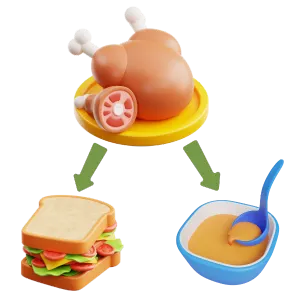
Get Help With Holiday Meal Planning
Save The Food, a public service website by the Natural Resources Defense Council (NRDC), offers a dinner party calculator that allows you to estimate how much food you really need to entertain. In addition, they provide tips on creating perfectly portioned shopping lists, and provide tips for proper food storage.
5. Remember to Recycle right
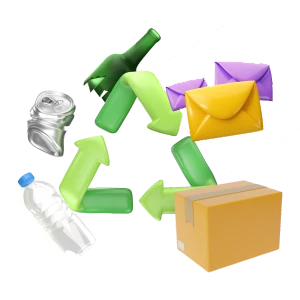
- Cardboard Boxes: With the rise in online shopping, cardboard boxes pile up quickly. Nearly 100% of these boxes are recyclable.
- Holiday Cards: Non-embellished paper cards can be recycled but why not save your holiday cards and give them a second life by turning them into unique gift tags. Simply cut out cheerful designs or messages and attach them to your presents for a personal touch. It’s a great way to reuse and recycle, adding a bit of festive charm to every gift.
- Aluminum Cans: Whether it’s a soda can or a pie tin, aluminum is one of the most recyclable materials, and recycling it saves 95% of the energy needed to make new aluminum.
- Glass Bottles: Bottles like wine and champagne bottles are 100% recyclable and can be recycled endlessly without loss of quality.
By being mindful of what can be reused or recycled, you can significantly reduce the environmental impact of your holiday celebrations.
Not sure if something is recyclable? Give our Where Does It Go, Joe? sorting tool a try!
